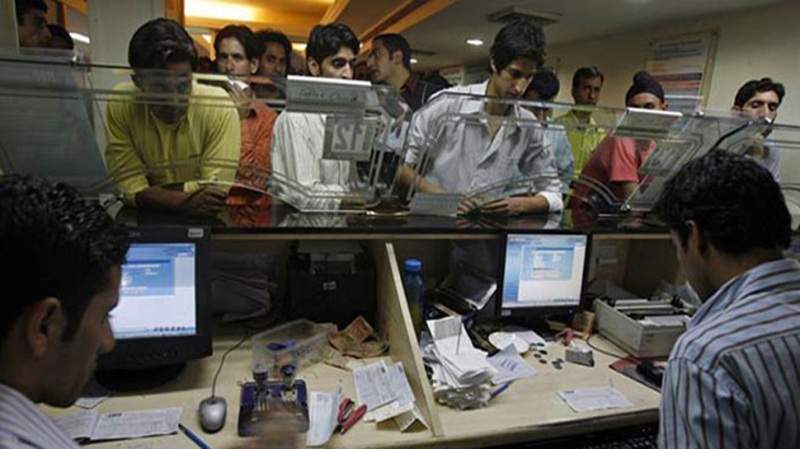Gold Silver Reports (GSR) – ⭐⭐⭐⭐⭐ India’s Banking Bog Needs a Private Road to Salvation — India’s unreformed banking system needs a massive privatization drive. The sooner this dawns on authorities, the better for taxpayers, investors and borrowers.
Exhibit A is an index of share prices of state-run banks.
It took one $2 billion fraud at government-owned Punjab National Bank to snuff out all the excitement over a $32 billion recapitalization of these moth-eaten institutions. Now the recap plan has gone back to the drawing board.
How much more must taxpayers chip in to make the bailout great again?
Take a look at the index of state-run banks, but this time focus on individual lenders’ price-to-book ratios. With two out of three banks trading at less than half book value, nobody will them give capital to grow — not when investors have already suffered losses on the $4 billion or so in fresh equity they did provide over the past year.
Investors were wrong to bet these institutions’ problems were largely behind them. Already, 11 out of 21 state-run lenders are under the central bank’s “prompt corrective action” plan, which requires them to preserve capital and hit the brakes on growth.
Now, Punjab National and a few others are expected to join them in the doghouse. That means a potential early recall of almost $6 billion in bail-in bonds they’ve sold to bolster thin capital cushions, according to estimates by ICRA Ltd., the India affiliate of Moody’s Investors Service.
So while the direct hit from the PNB fraud was $2 billion, the indirect blow to the taxpayer is an additional $6 billion of capital that will no longer be coming from noteholders.
Read More : PSU Banks Extend Decline To Second Day
Worse, yields on Indian government bonds are rising. Every percentage point increase means a $5 billion loss for state-run lenders on bloated inventories of sovereign paper.
It doesn’t end there. Big chunks of the banks’ $207 billion in corporate bad debt are waiting to be sold in bankruptcy proceedings.
However, the nephew-uncle jeweler duo of Nirav Modi and Mehul Choksi, the accused in the PNB scam, have quietly left India. This is when people were already angry that the government couldn’t bring home beer baron Vijay Mallya to clear his failed Kingfisher Airlines’ $1 billion in bank loans.
The embarrassment of being unable to hold fugitive tycoons accountable forced the government to ask state-run banks to investigate all nonperforming loans above $8 million for malfeasance; there’ll be a more formal inquiry if money-laundering is suspected.
This is a fresh spanner. As I wrote recently, recovering value from assets in bankruptcy has already become difficult. For one thing, there’s the government’s insistence that new buyers be squeaky clean — and pay up first in case any of their businesses has unpaid dues. That’s why ArcelorMittal’s bid for Essar Steel Ltd. may run into trouble. For another, India’s U.K.-style bankruptcy law is very new, and the resolution professionals appointed by the National Company Law Tribunal are making up rules on the fly. Naturally, losing bidders are challenging the sales, frustrating the banks’ hopes of seeing any quick money.
Those who argue that privatization is no panacea could always point out that CEOs of private-sector lenders like ICICI Bank Ltd. and Axis Bank Ltd. have also been summoned by the serious fraud investigation office over advances to Choksi’s company.
But is there is even a suggestion that a private-sector Indian bank get a taxpayer-funded bailout? No, the sinking feeling only applies to state-run institutions that control 70 percent of the banking system’s assets.
The time for “corrective” action — prompt or otherwise — is past. To prevent bailout costs ballooning further, authorities should accept that wealthy fugitives have done them a service by showing just how operationally vulnerable India’s banking system really is.
Government bailouts can help improve financial health. Only a new owner can change a bank’s DNA.
This column does not necessarily reflect the opinion of Bloomberg LP and its owners.
Andy Mukherjee is a Bloomberg Gadfly columnist covering industrial companies and financial services. He previously was a columnist for Reuters Breakingviews. He has also worked for the Straits Times. – Neal Bhai Reports (NBR) INDIA
